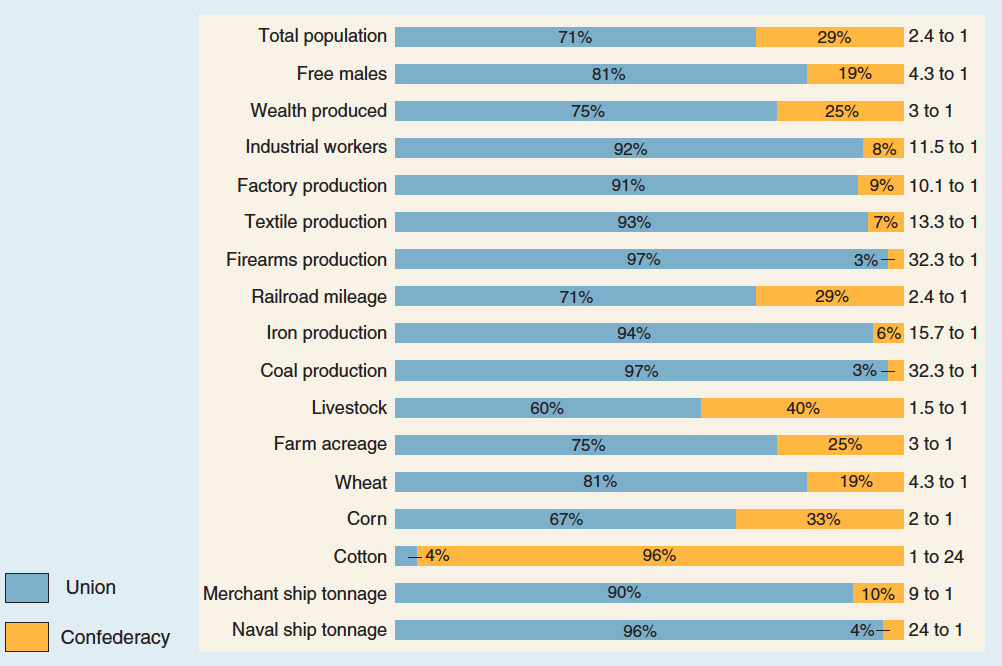How They Expected to Win.
Printed Page 391 Chapter Chronology
How They Expected to Win. The balance sheet of northern and southern resources reveals enormous advantages for the Union (Figure 15.1). The twenty-three states remaining in the Union had a population of 22.3 million; the eleven Confederate states had a population of only 9.1 million, of whom 3.67 million (40 percent) were slaves. The North's economic advantages were even more overwhelming. Yet Southerners expected to win — for some good reasons — and they came very close to doing so.

Southerners knew they bucked the military odds, but hadn't the liberty-loving colonists in 1776 also done so? "Britain could not conquer three million," a Louisianan proclaimed, and "the world cannot conquer the South." How could anyone doubt the outcome of a contest between lean, hard, country-born rebel warriors defending family, property, and liberty, and soft, flabby, citified Yankee mechanics waging an unconstitutional war?
The South's confidence also rested on its belief that northern prosperity depended on the South's cotton. Without cotton, New England textile mills would stand idle. Without planters purchasing northern manufactured goods, northern factories would drown in their own unsold surpluses. And without the foreign exchange earned by the overseas sales of cotton, the financial structure of the entire Yankee nation would collapse.
Cotton would also make Europe a powerful ally of the Confederacy, Southerners reasoned. Of the 900 million pounds of cotton Britain imported annually, more than 700 million pounds came from the American South. If the supply was interrupted, sheer economic need would make Britain (and perhaps France) a Confederate ally. And because the British navy ruled the seas, the North would find Britain a formidable foe.
The Confederacy devised a military strategy to exploit its advantages and minimize its limitations. It recognized that a Union victory required the North to defeat and subjugate the South, but a Confederate victory required only that the South stay at home, blunt invasions, avoid battles that risked annihilating its army, and outlast the North's will to fight. When an opportunity presented itself, the South would strike the invaders. Like the American colonists, the South could win independence by not losing the war.
The Lincoln administration countered with a strategy designed to take advantage of its superior resources. Lincoln declared a naval blockade of the Confederacy to deny it the ability to sell cotton abroad, giving the South far fewer dollars to pay for war goods. Lincoln also ordered the Union army into Virginia, at the same time planning a march through the Mississippi valley that would cut the Confederacy in two.